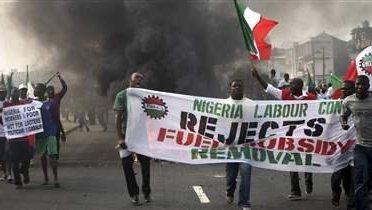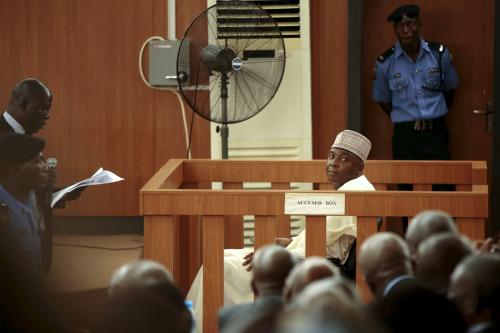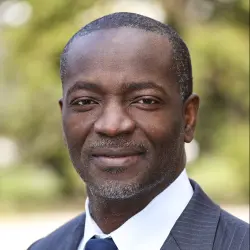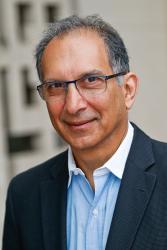Corruption comes in many forms, some alarming and some insidious. There was an opportunity to ask Ngozi Okonjo-Iweala, former Nigerian finance minister, which form was most alarming at an April 20 discussion about her new book, Fighting Corruption is Dangerous: The Story Behind the Headlines, organized by the Center for Global Development and the Brookings Institution in Washington, D.C. The book is an insider’s account of the practical obstacles in fighting corruption in Nigeria. It is both technical and deeply personal. Very seldom has a policymaker, who has been on the frontlines, courageously exposed the internal forces of corruption in such a rigorous and candid manner.
There are many types of corruption, each of which must be tackled. Grand corruption and political corruption stem from an abuse of high-level power for personal gain, or to benefit a few cronies. It is probably the most difficult to root out. Yet petty corruption is corrosive as well and felt more immediately by ordinary people. Eliminating crooked traffic cops or local police collecting bribes helps persuade people that a broader anti-corruption campaign is underway.
In many countries, there are few instruments to fight grand corruption precisely because those in power benefit so much from the system. For example, in Nigeria, the Finance Ministry was not in control of oil revenues—rather, they simply received funds from the Federal Ministry of Petroleum. Instruments such as introduction of an electronic payment system, biometric identification of government workers, and transparent reporting of transfers to state governments all helped to reduce opportunities for fraud and waste.
In publishing this powerful account, Okonjo-Iweala has achieved three objectives. First, to set the record straight by providing a behind-the-scenes account of real events, which occurred during her time in Nigeria’s government. Second, to expose the main actors and forces behind corruption in Nigeria and share information on some of the efforts by her team to fight them. Finally, to highlight corruption in the developing world more broadly, the obstacles to eradicating it, and the risks to those who choose to fight it. These objectives have been achieved.
As you read the book, it becomes clear why corruption is so entrenched in the developing world and why, despite this recognition and the determination by some policymakers, so little is done about it in so many places.
We think the webcast of the conversation last week is well worth watching:
It should give hope to a new generation of policymakers that the fight for accountability will continue. Intimidation will not work, according to Okonjo-Iweala, because backing down is just what the corrupt actors want. This is an inspiring story.
The Brookings Institution is committed to quality, independence, and impact.
We are supported by a diverse array of funders. In line with our values and policies, each Brookings publication represents the sole views of its author(s).









Commentary
She won’t back down: Ngozi Okonjo-Iweala’s fight against corruption
April 26, 2018